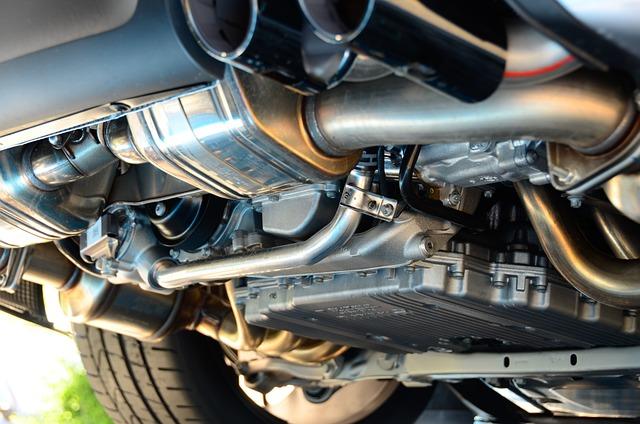How Diesel Exhaust Fluid Helps Meet Environmental Standards and Regulations
Diesel engines have powered various sectors, from transportation to agriculture, for decades. However, they also produce significant amounts of nitrogen oxides (NOx) and particulate matter, which harm the environment and public health. In response to growing environmental concerns, manufacturers and regulatory agencies have implemented stringent standards, compelling diesel operators to utilize technologies and fluids designed to minimize emissions. One such solution is Diesel Exhaust Fluid (DEF), an essential component of Selective Catalytic Reduction (SCR) systems, which significantly reduces harmful exhaust. Understanding how DEF works can help operators comply with environmental regulations and improve the sustainability of their operations.
Finding The Right Fluids For You
Choosing the appropriate diesel exhaust fluid requires attention to various factors including quality, storage, and application. Not all DEF is created equal; some products might contain impurities that can counteract the benefits of an SCR system. When you are looking for diesel exhaust fluid make sure to verify that it meets the ISO 22241 standard for purity. This ensures that the fluid is urea-based and free from contaminants, which is crucial for effective emissions reduction. Additionally, understanding the specific needs of your engine and machinery is important. Consult manufacturer guidelines to ensure the proper concentration and application methods are used. Most DEF is provided in pre-packaged containers ranging from small bottles to bulk tanks. For large fleets, investing in a dispensing system can provide efficiency and convenience, ensuring consistent quality control.
The Mechanism of Diesel Exhaust Fluid
DEF is utilized in the SCR process, which transforms toxic NOx gases into harmless nitrogen and water vapor before they exit the exhaust system. The SCR system injects DEF into the exhaust stream, where it reacts with the NOx in the presence of a catalyst. This process effectively reduces NOx emissions by up to 90%, helping diesel operators comply with tough environmental regulations. Studies show that diesel engines equipped with SCR systems can enhance fuel efficiency by 5 to 7%. This is due to the opportunity for engine manufacturers to optimize combustion without risking increased NOx emissions, ultimately leading to reduced operational costs. Therefore, implementing DEF is not just about meeting standards; it has financial benefits as well.
Impact of Regulations on Diesel Operators
Environmental regulations such as the Clean Air Act in the United States and equivalent laws around the world mandate specific emission reductions from diesel engines. These regulations have driven the development of new technologies, including SCR and DEF. Non-compliance can lead to substantial fines, restrictions on vehicle operations, and a tarnished reputation. Diesel operators have had to adapt quickly, often needing to invest in new technologies and conduct regular maintenance to ensure their systems are functioning optimally. The challenge is not only to comply but also to stay ahead of regulations as they continue to evolve.
Benefits of Using Diesel Exhaust Fluid
Using DEF offers numerous advantages for diesel operators beyond regulatory compliance. By minimizing NOx emissions, businesses contribute positively to public health and the environment, potentially improving community relations. Furthermore, the use of DEF can enhance an engine's performance and longevity. Operating at optimal conditions reduces wear and tear on engine components, which leads to longer maintenance intervals and increased reliability. In addition, utilizing DEF properly can even improve fuel economy. When engines run efficiently, it translates to reduced fuel consumption, further driving down operating costs.
Challenges and Solutions in Implementing DEF
While the benefits of DEF are clear, challenges exist regarding its storage and handling. DEF is sensitive to temperature and should be stored at optimal conditions to maintain effectiveness. Exposure to extreme heat or cold can lead to crystallization or degradation of the fluid, reducing its performance and availability. To solve these issues, operators should use insulated tanks and ensure temperature regulation. Additionally, training employees in the proper handling of DEF can prevent common mistakes and ensure quality fluid is used.
Future of Diesel Exhaust Fluid in Sustainable Practices
As the world increasingly focuses on sustainability, the role of DEF is poised to grow. Regulatory agencies are likely to impose even stricter emissions standards, resulting in a greater emphasis on technologies like SCR and DEF. Manufacturers are investing in research and development to create even more efficient and environmentally friendly exhaust systems. Moreover, as the industry evolves, new alternatives may emerge, leading to more options for operators. However, DEF will likely remain a pivotal element in reducing NOx emissions in the foreseeable future.
Diesel Exhaust Fluid plays a critical role in helping diesel operators comply with environmental standards while improving engine performance. Its efficacy in reducing harmful emissions makes it a necessary component in modern diesel engines equipped with SCR systems. As regulations continue to tighten, understanding the benefits of DEF will be crucial for operators looking to maintain compliance and improve the sustainability of their operations.

